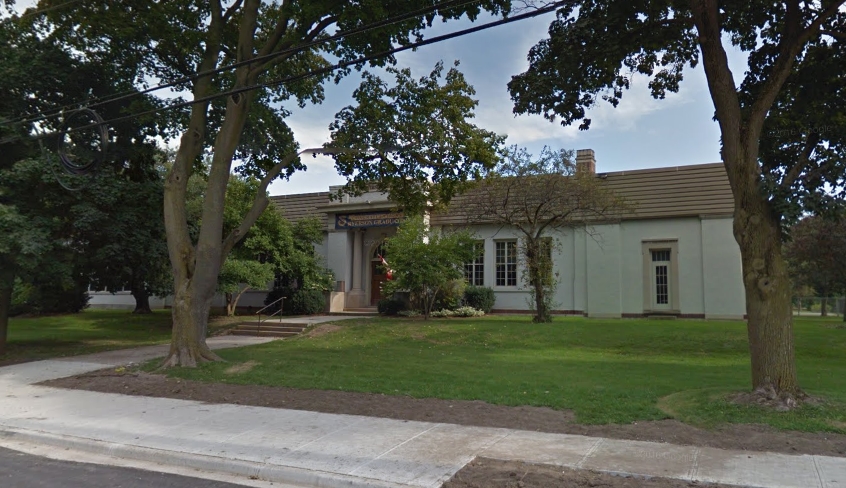The Thames Valley District School Board has removed the name of Ryerson Public School from its outdoor sign after it was vandalized sometime overnight Sunday.

The school board says it discovered that the Waterloo Street’s sign had been vandalized with paint Monday morning, and removed the letters and crest for cleaning.
The damage to the sign comes as members of the school board are set to discuss renaming the school at a board meeting next week over its namesake’s prominent role in the residential school system.
A motion set to go before board members Tuesday calls for a review to be conducted of all schools, facilities and learning environments within TVDSB that are named after people, beginning with Ryerson Public School and Sir John A. Macdonald Public School.
The review, the motion reads, is to ensure the names reflect the school board’s policy that school names “reflect (TVDSB’s) commitment to promote human rights, equity and inclusive learning environments and honor the diversity of TVDSB schools and community.”
A separate motion will also be discussed, put forward by trustee Corrine Rahman, which calls on TVDSB to engage in the consultation process, as outlined in the board’s naming of schools procedure, to rename Ryerson with input from the public and participation from First Nation community members.
Rahman’s motion notes that members of Ryerson school council met on June 7 and expressed support that the school’s name be changed.

Ryerson Public School is named after Egerton Ryerson, who, along with Macdonald, Canada’s first prime minister, is considered an architect of Canada’s residential school system, where for more than a century, some 150,000 First Nations, Métis and Inuit children were forcibly sent.
The government-funded, church-operated schools sought to convert and assimilate Indigenous children into Canadian culture and saw them suffer widespread physical and sexual abuse.
In 2015, the Truth and Reconciliation Commission ruled the schools constituted a “cultural genocide,” and determined that more than 4,000 known deaths occurred at the institutions while an untold number of children are still missing.

Get daily National news
Last month, ground-penetrating radar detected an unmarked burial site believed to contain the remains of 215 children at a former residential school in Kamloops, B.C.
In the wake of the discovery, demands from the public have grown to remove the names of Ryerson and Macdonald, and those of other individuals linked to residential schools, from buildings and public institutions.
In Toronto, Ryerson University created a task force to review its namesake after calls for action and the toppling of an Egerton Ryerson statue on the campus earlier this month.
There has also been pressure from the public to undertake similar ground searches like the one in Kamloops at other sites across the country. A search conducted in Manitoba led to the discovery of 104 potential graves at a former residential school near the city of Brandon.
There are at least 18 known residential school sites in Ontario, including Mohawk Institute Residential School in Brantford and Mount Elgin Indian Residential School (also known as Muncey Institute) in Muncey.
On Tuesday, the Ontario goverment said it would commit $10 million over three years to identify, investigate and commemorate burial sites on the grounds of former residential schools in the province.
The National Truth and Reconciliation Commission identified 12 locations of unmarked burial sites in Ontario. The province said there are likely more.
Ottawa pledged $27 million last month to support Indigenous communities in locating and memorializing children who died at residential schools.
–With files from Jacquelyn LeBel and The Canadian Press
- Canadian government’s satellite deal has Tories calling for Elon Musk involvement
- Despite good economic news, experts warn the pain’s not over yet
- Activists call for Boogie the monkey to be removed from Ontario roadside zoo
- Jasper mayor says CN Rail relocation will be devastating: ‘Deeply disappointed’









Comments